As a holistic veterinarian, I know how much you love your bulldog. I also understand that you’re concerned about your furry friend’s eye health. Bulldogs, with their unique facial structure, are prone to certain eye conditions that can impact their quality of life. But don’t worry, I’m here to guide you through understanding Bulldog Eye Health – Conditions & Solutions From Vet.
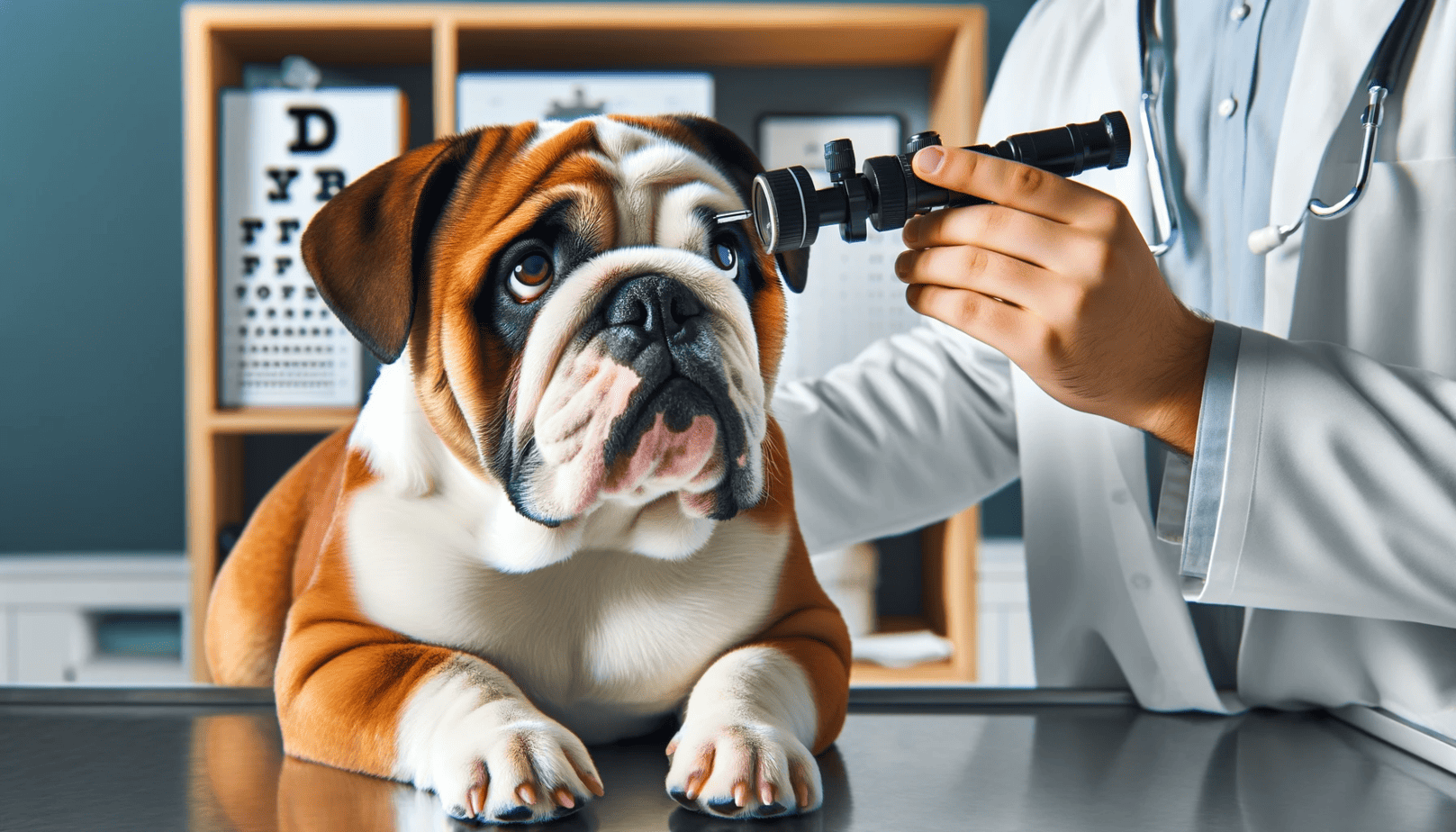
Having treated many bulldogs in my practice, I’ve noticed a pattern of common eye issues. These range from minor irritations to potentially serious conditions such as cherry eye, dry eye, and entropion. But the good news is, most of these conditions are treatable, and with proper care and attention, your bulldog can lead a happy, healthy life.
Prevention is always better than cure, and this holds true for your bulldog’s eye health as well. A holistic diet rich in natural Vit A and antioxidants, along with whole-food-based nutritional supplements, can go a long way in maintaining your bulldog’s eye health. Environmental hygiene is equally important. Ensuring good indoor air quality and minimizing exposure to irritants like sprays, diffusers, candles, and incense can help prevent eye problems.
In this article, I’ll share my Vet Recommendations for Bulldog Eye Health and Bulldog Eye Care Tips from Veterinarians. So, let’s get started on this journey towards ensuring your bulldog’s sparkling eyes stay healthy and bright!
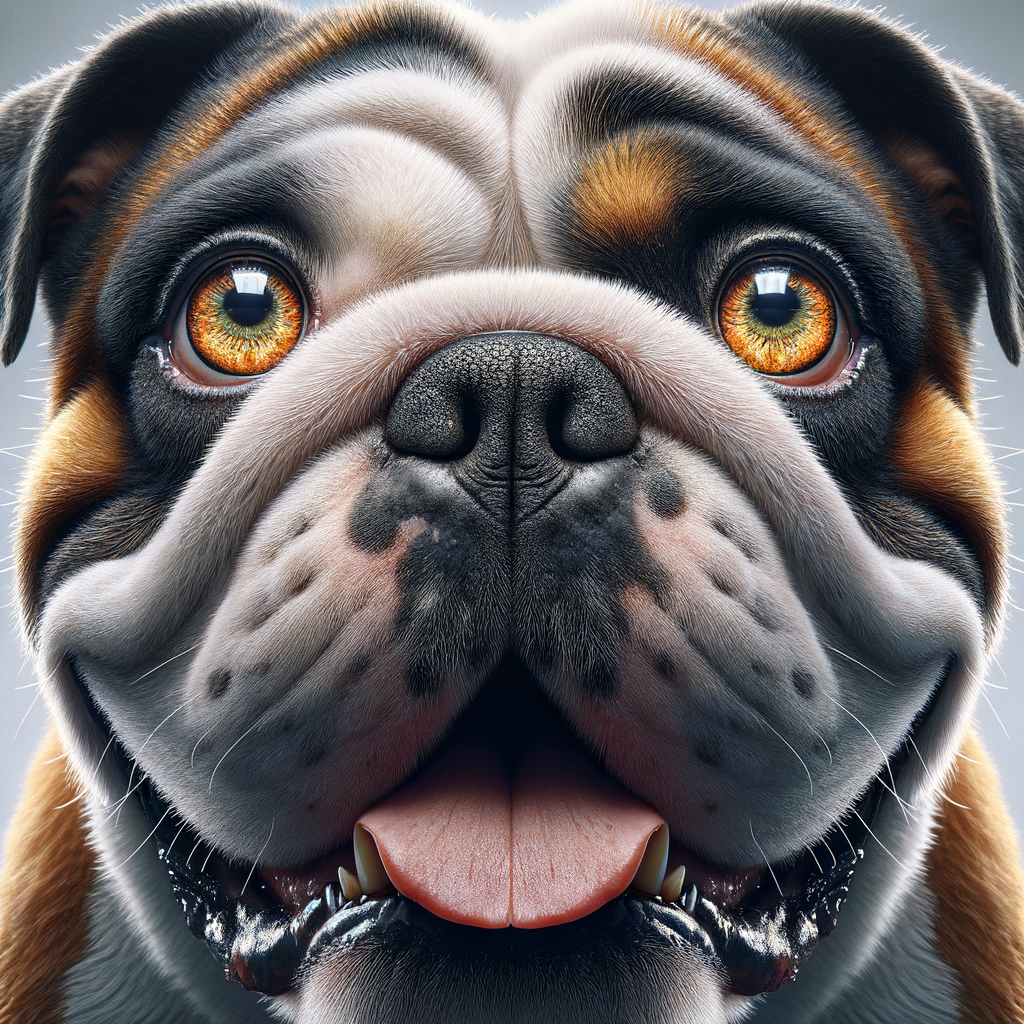
Understanding Bulldog Specific Eye Structure
Let’s dig into the fascinating world of bulldogs and their unique eye structure. Understanding this will not only help you appreciate your bulldog’s distinctive looks but will also equip you with the knowledge to better care for their eye health.
One of the most notable features of a bulldog’s eye is the third eyelid or nictitating membrane. This is a thin tissue that lies in the corner of the eye, acting as an additional protective layer. It helps to keep the eye moist and removes debris. However, this third eyelid can sometimes cause health problems, such as cherry eye, a condition where the gland of the third eyelid prolapses and becomes visible.
Another distinctive characteristic of bulldog eyes is their eyelashes. Bulldogs have relatively long eyelashes compared to other breeds. While these lashes add to their charm, they can sometimes grow inwards, leading to a condition known as distichiasis, which can cause discomfort and potentially damage the cornea if not managed properly.
Lastly, bulldogs have skin folds or wrinkles around their eyes, which are part of their breed’s signature look. These wrinkles, if not kept clean and dry, can harbor bacteria and yeast, leading to skin infections that can affect the eyes.
As a bulldog parent, understanding these unique features of your pet’s eyes will help you identify any changes or abnormalities early on. This knowledge is the first step towards ensuring your bulldog’s eye health and overall well-being. Remember, regular vet check-ups are crucial in maintaining your bulldog’s eye health and detecting any potential issues early.
Stay tuned as we explore common eye issues in bulldogs in the next section and discuss ways to prevent and treat them. As a holistic vet, I’m here to guide you through every step of your bulldog’s health journey.
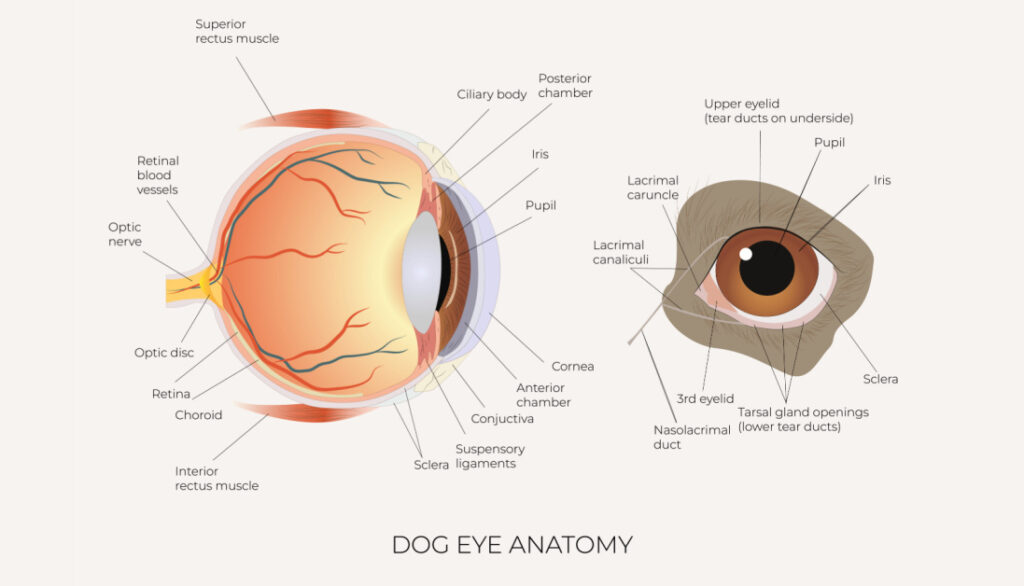
Common Eye Issues In Bulldogs
Being a veterinarian, it’s my pleasure to share my knowledge and experience about Bulldog Eye Health – Conditions & Solutions From Vet perspective. Bulldogs, with their unique facial structure and lovable wrinkles, are prone to several eye conditions. Let’s discuss some of these common issues and their potential solutions.
- Cherry Eye: This condition occurs when the gland in the third eyelid prolapses, creating a red, swollen mass that resembles a cherry. It’s quite common in bulldogs and may require surgical correction.
- Entropion: Bulldogs are prone to this condition where the eyelid rolls inward, causing the lashes to rub against the eye. It can lead to irritation, painful corneal ulcers, and impaired vision. Surgical intervention is often necessary.
- Dry Eye (Keratoconjunctivitis Sicca): This is a condition where the eye does not produce enough tears, leading to chronic dryness, irritation, and potential vision loss. Treatment includes eye drops and medications to stimulate tear production.
- Conjunctivitis: Known commonly as pink eye, this infection causes inflammation and discharge. It’s often a symptom of allergies or underlying health issues, and can be treated with eye drops and medications.
- Corneal Ulcer: These painful sores on the eye’s surface can result from trauma, infection, or conditions like dry eye or entropion. Treatment depends on the underlying cause but often includes antibiotics and pain relief.
As part of Bulldog Eye Health – Conditions & Solutions From Vet consultation, it’s important to note that prompt vet attention is crucial if you notice any changes in your bulldog’s eyes. Eye problems can escalate quickly, and early intervention can often prevent more serious complications.
Remember, regular check-ups are essential for maintaining your bulldog’s eye health. In addition to treating existing conditions, your vet can recommend preventive measures and solutions to avoid potential eye issues. So, let’s keep those beautiful bulldog eyes bright and healthy!
Note: Every dog is unique and might respond differently to treatments. Always consult your vet for the best course of action tailored to your pet’s specific needs.
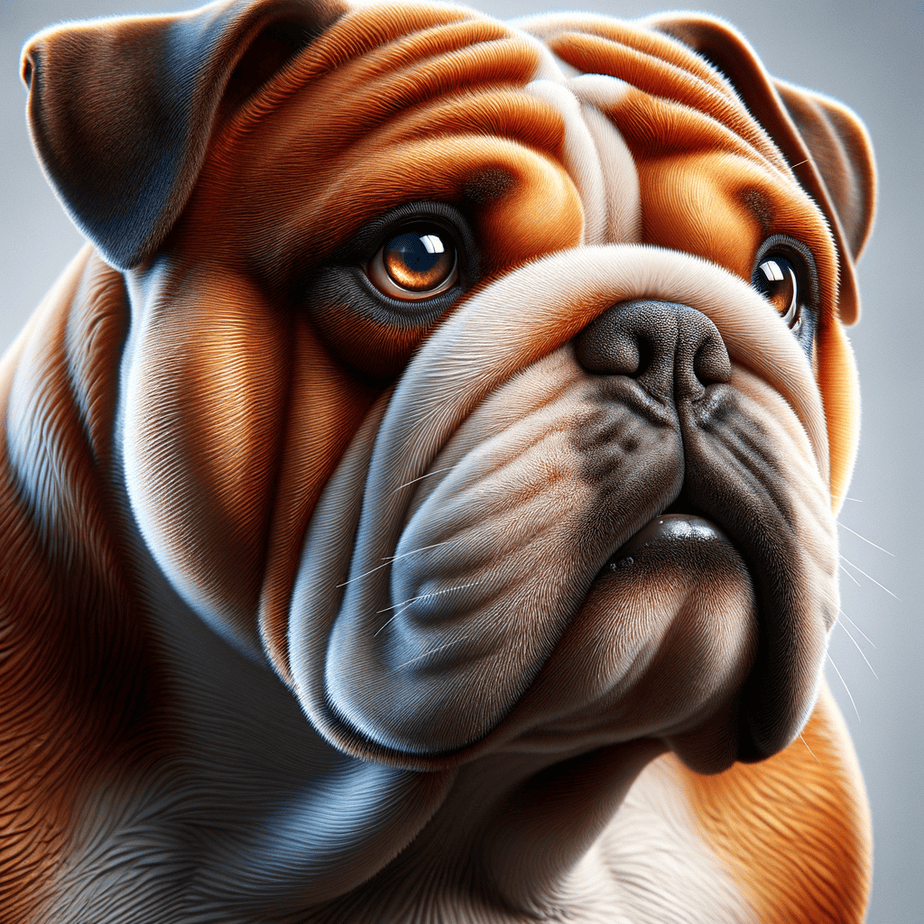
Nourishing Your Dog’s Vision: Essential Nutrients for Eye Health
Ensuring your bulldog gets the right nutrients for optimal eye health is essential for maintaining clear vision and preventing age-related issues. Natural, nutrient-rich foods and supplements can play a key role in supporting their eyesight. From vitamin A-packed freeze-dried liver treats to antioxidant-rich blueberries and targeted supplements like Eyeplex by Standard Process, there are several ways to nourish your dog’s eyes. In this section, we’ll explore how these powerful ingredients contribute to long-term vision health and overall well-being.
Eyeplex by Standard Process
Eyeplex by Standard Process is a specialized supplement designed to support your bulldog’s eye health with a blend of essential nutrients. Formulated with key vitamins, minerals, and antioxidants, Eyeplex helps protect against oxidative stress, supports retinal function, and promotes overall vision health. Ingredients like vitamin A, vitamin C, and zinc contribute to maintaining strong eyesight, while whole food ingredients provide additional phytonutrients for cellular protection. Adding Eyeplex to your bulldog’s diet can be especially beneficial for aging dogs or breeds prone to eye conditions, offering targeted nutritional support to keep their vision sharp and healthy for years to come.
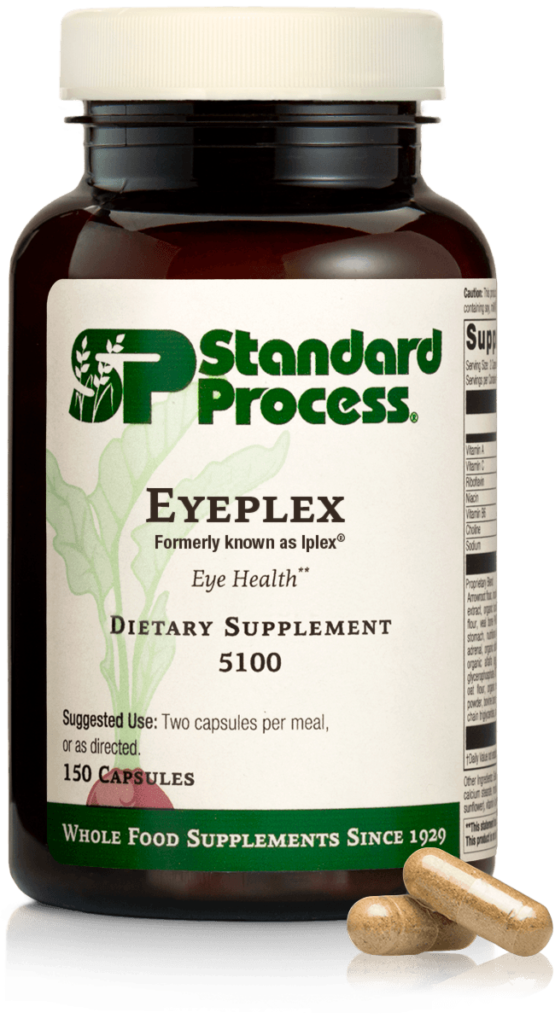
Freeze-Dried Blueberries
Freeze-dried blueberries are a powerhouse of antioxidants that can help protect your bulldog’s eyes from oxidative stress and age-related damage. Rich in vitamins C and E, as well as anthocyanins, these tiny but mighty berries help combat free radicals that can contribute to eye diseases like cataracts and macular degeneration. Incorporating freeze-dried blueberries into your dog’s diet provides a natural and delicious way to support retinal health, reduce inflammation, and promote overall vision longevity. Plus, they’re a low-calorie, dog-friendly treat that makes a great addition to a balanced diet for long-term eye health.
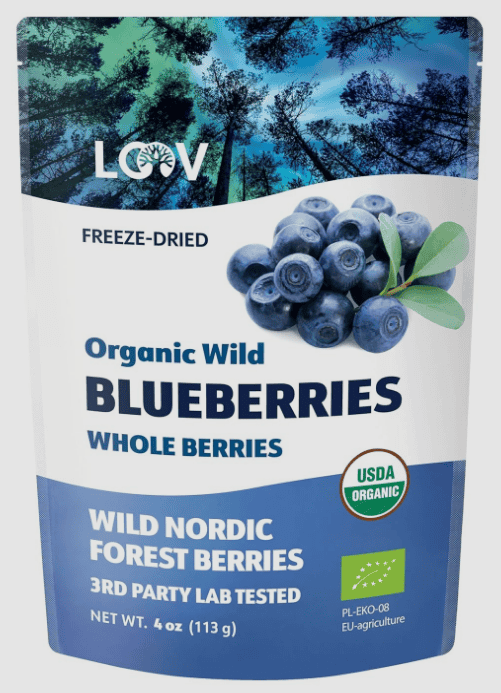
Freeze-Dried Liver
Freeze-dried liver treats are an excellent natural source of vitamin A, an essential nutrient for your bulldog’s eye health. Vitamin A plays a crucial role in maintaining good vision, especially in low-light conditions, while also supporting overall immune function and skin health. Since liver is rich in bioavailable vitamin A, incorporating freeze-dried liver treats into your dog’s diet provides a convenient and nutritious way to promote optimal eye function. Just be sure to feed them in moderation, as excessive vitamin A can lead to toxicity. Adding these nutrient-packed treats to your pup’s routine is a simple, tasty way to support their long-term vision and well-being!
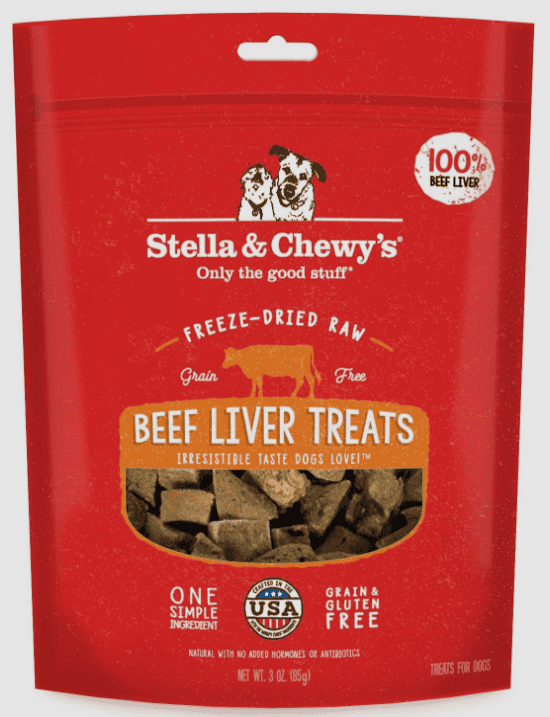
By prioritizing your bulldog’s eye health through a balanced diet and nutritional supplements, you can help prevent many common eye issues. These simple steps can go a long way in ensuring your pup’s eyes stay healthy and clear for years to come.
Environmental Hygiene To Reduce Eye Problems
Just as we, humans, thrive in a clean and healthy environment, so do our furry friends. Bulldogs, with their unique eye structure, are particularly susceptible to eye health issues, which can be exacerbated by poor environmental hygiene. Let’s explore some ways to maintain a clean and safe environment for your bulldog to reduce the risk of eye problems.
Indoor Air Quality
Indoor air quality plays a crucial role in your Bulldog’s eye health. Bulldogs are brachycephalic breeds, meaning they have short noses and flat faces. This makes them more susceptible to respiratory issues, which can indirectly affect their eye health. To ensure good indoor air quality:
- Regularly clean and dust your home to reduce allergens.
- Ensure proper ventilation in your home.
- Avoid smoking indoors as smoke can irritate your bulldog’s eyes.
- Consider using an air purifier to filter out potential irritants.
Sprays, Diffusers, Candles, Incense
While we love our homes to smell good, some products like sprays, diffusers, candles, and incense can cause irritation to your bulldog’s eyes. Here’s what you can do:
- Avoid using these products in the same room as your bulldog.
- If you must use them, ensure good ventilation and keep your bulldog at a safe distance.
- Choose natural, unscented products whenever possible.
- Monitor your bulldog for any signs of eye irritation, such as excessive blinking, redness, or discharge.
Remember, a clean and healthy environment is not only beneficial for your bulldog’s eye health but also for their overall well-being. Keep your home clean, ensure good air quality, and be mindful of the products you use around your bulldog. With these simple steps, you can help prevent common eye conditions in bulldogs and ensure your furry friend’s eyes stay bright and healthy.
Environmental Hygiene To Reduce Eye Problems
Just as we, humans, thrive in a clean and healthy environment, so do our furry friends. Bulldogs, with their unique eye structure, are particularly susceptible to eye health issues, which can be exacerbated by poor environmental hygiene. Let’s explore some ways to maintain a clean and safe environment for your bulldog to reduce the risk of eye problems.
Indoor Air Quality
Indoor air quality plays a crucial role in your Bulldog’s eye health. Bulldogs are brachycephalic breeds, meaning they have short noses and flat faces. This makes them more susceptible to respiratory issues, which can indirectly affect their eye health. To ensure good indoor air quality:
- Regularly clean and dust your home to reduce allergens.
- Ensure proper ventilation in your home.
- Avoid smoking indoors as smoke can irritate your bulldog’s eyes.
- Consider using an air purifier to filter out potential irritants.
Sprays, Diffusers, Candles, Incense
While we love our homes to smell good, some products like sprays, diffusers, candles, and incense can cause irritation to your bulldog’s eyes. Here’s what you can do:
- Avoid using these products in the same room as your bulldog.
- If you must use them, ensure good ventilation and keep your bulldog at a safe distance.
- Choose natural, unscented products whenever possible.
- Monitor your bulldog for any signs of eye irritation, such as excessive blinking, redness, or discharge.
Remember, a clean and healthy environment is not only beneficial for your bulldog’s eye health but also for their overall well-being. Keep your home clean, ensure good air quality, and be mindful of the products you use around your bulldog. With these simple steps, you can help prevent common eye conditions in bulldogs and ensure your furry friend’s eyes stay bright and healthy.
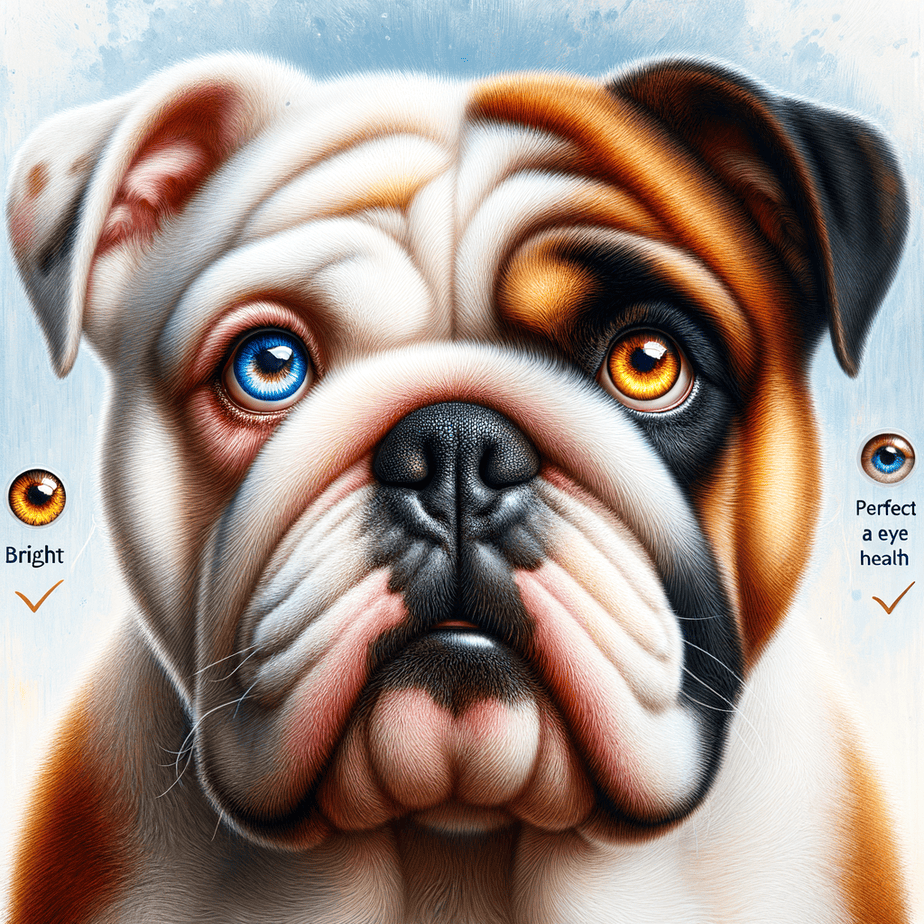
Routine Bulldog Eye Care & Maintenance
Daily & Weekly Care & Maintenance
As a bulldog parent, it’s crucial to incorporate a daily and weekly regimen for your dog’s eye health. Regular eye cleaning is a must. Use a soft, damp cloth or a special pet eye wipe to gently clean the area around your bulldog’s eyes. This helps to remove any dirt or debris that could potentially cause irritation or infection.
Additionally, keep an eye out for signs of discomfort such as excessive blinking, redness, discharge, or your bulldog rubbing its eyes. These could be indications of a potential eye problem. If you notice any of these signs, it’s recommended to consult your vet immediately.
Monitor Hair Length, Nail Length, & Bath Frequency
Believe it or not, your bulldog’s hair and nail length, as well as bath frequency, can all play a role in maintaining their eye health. Long hair can irritate the eyes and cause infections. Therefore, regular grooming is essential. Keep the hair around their eyes trimmed and neat. But remember, always be careful not to hurt their eyes when grooming.
Long nails can also pose a risk. Bulldogs often scratch their faces, and long nails could lead to unintentional eye injuries. Regular nail trims can help prevent this. Lastly, consider your bulldog’s bath frequency. Overbathing can strip away essential oils from their skin, leading to dryness and potential eye irritation. On the other hand, not bathing often enough could lead to a build-up of dirt and bacteria around the eyes.
So, what’s the right balance? A good rule of thumb is to bathe your bulldog every 6-8 weeks, but this can vary depending on their lifestyle and activities. Always use a gentle, dog-approved shampoo and avoid getting it in their eyes.
Remember, Bulldog Eye Health – Conditions & Solutions From Vet are not just about treating issues as they arise. It’s also about preventative care. By incorporating these routine care and maintenance tips into your bulldog’s lifestyle, you’re doing your part to keep their eyes healthy and vibrant.
As always, if you have any concerns about your bulldog’s eye health, don’t hesitate to consult with your vet. They’re your best resource for Veterinary Solutions for Bulldog Eye Health.
Frequently Asked Questions
1. What are common eye conditions in Bulldogs?
Bulldogs are prone to various eye conditions such as cherry eye, dry eye, corneal ulcers, and entropion.
2. How can I prevent eye problems in my Bulldog?
To prevent eye problems, it is important to keep your Bulldog’s face clean, avoid exposure to irritants, regularly check for any signs of discomfort or abnormalities, and provide a balanced diet with essential nutrients.
3. What are the symptoms of eye issues in Bulldogs?
Common symptoms of eye issues in Bulldogs include redness, excessive tearing, discharge, squinting, rubbing or pawing at the eyes, cloudiness, and changes in the appearance of the eye.
4. Can Bulldogs wear protective eyewear?
Yes, Bulldogs can wear protective eyewear, especially when engaging in activities that may expose their eyes to potential harm, such as swimming, playing in dusty areas, or during windy weather.
5. When should I seek veterinary care for my Bulldog’s eye problems?
If you notice persistent or worsening symptoms, significant discomfort, changes in vision, or any other concerning signs related to your Bulldog’s eyes, it is recommended to seek veterinary care as soon as possible.
